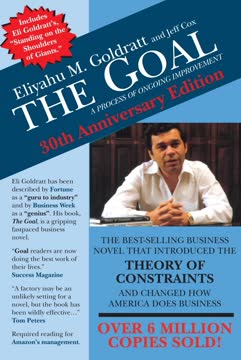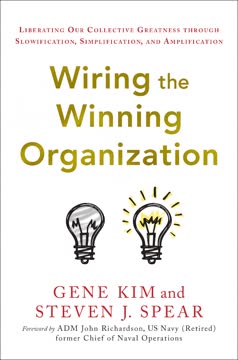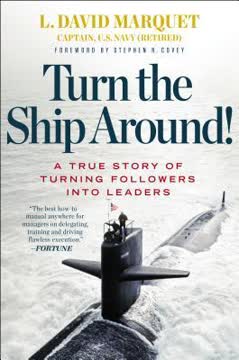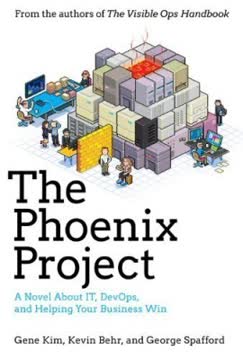Key Takeaways
1. Toyota's leadership model focuses on continuous self-development and developing others
Toyota believes that the key trait that distinguishes potential leaders from everyone else is self-development—leaders actively seek to improve themselves and their skills.
Self-development is critical. Toyota's leadership model emphasizes the importance of continuous self-improvement and the development of others. This approach creates a culture of learning and growth throughout the organization.
Leaders as teachers. In the Toyota system, leaders are expected to be teachers and mentors, actively developing the skills and capabilities of their team members. This focus on developing others ensures a pipeline of capable leaders at all levels of the organization.
Challenges as opportunities. Toyota deliberately creates challenging situations for leaders to grow and develop their skills. By facing and overcoming these challenges, leaders gain valuable experience and insights that contribute to their ongoing development.
2. The Toyota Way values challenge, kaizen, genchi genbutsu, teamwork, and respect
The five core values that define the Toyota Way are the spirit of challenge, kaizen, genchi genbutsu, teamwork, and respect.
Spirit of challenge drives innovation and improvement. Toyota encourages its employees to take on ambitious goals and embrace challenges as opportunities for growth.
Kaizen (continuous improvement) is a fundamental principle that permeates all aspects of the organization. It emphasizes that there is always room for improvement, no matter how successful a process or product may be.
Genchi genbutsu ("go and see") encourages leaders to observe problems firsthand rather than relying on reports or secondhand information.
Teamwork and respect form the foundation of Toyota's collaborative culture, fostering an environment where all employees feel valued and empowered to contribute their ideas and efforts.
3. Shu Ha Ri cycle: Learn basics, break from tradition, and transcend to mastery
The core of kata is the layered learning cycle, which is called in Japanese shu ha ri. These three terms refer to three stages of learning for the student and three levels of involvement for the teacher: shu means "to protect," ha means "to break away," and ri means "freedom to create."
Shu (protect): In this initial stage, learners focus on mastering the basics and following established procedures exactly. This builds a strong foundation of skills and knowledge.
Ha (break away): As learners become more proficient, they begin to explore variations and adaptations of the basic techniques, learning to apply them in different contexts.
Ri (freedom to create): At the highest level, learners transcend the rules and create their own approaches based on a deep understanding of the principles. This stage represents true mastery.
The Shu Ha Ri cycle is applied continuously throughout a Toyota leader's career, with each new challenge or skill requiring a return to the "Shu" stage of learning.
4. True North vision guides Toyota's pursuit of perfection and long-term goals
Toyota believes that the key trait that distinguishes potential leaders from everyone else is self-development—leaders actively seek to improve themselves and their skills.
True North as an ideal state. Toyota's concept of True North represents an unattainable state of perfection that the company continually strives towards. This vision provides a clear direction for all improvement efforts.
Long-term perspective. The True North vision encourages Toyota to focus on long-term goals and sustainable success rather than short-term gains. This approach allows the company to make decisions that may not yield immediate results but contribute to long-term excellence.
Continuous improvement driven by the gap. By constantly comparing the current state to the ideal True North, Toyota identifies gaps and opportunities for improvement. This process drives ongoing innovation and refinement in all areas of the business.
5. Daily kaizen drives continuous improvement at all levels of the organization
At Toyota, kaizen isn't a set of projects or special events; rather, it's an integral part of leadership. It's how the company operates at the most fundamental level.
Kaizen as a daily practice. Rather than treating improvement as a series of isolated events, Toyota integrates kaizen into everyday work. This approach ensures that improvement is ongoing and pervasive throughout the organization.
Two types of kaizen:
- Maintenance kaizen: Reacting to unexpected issues to maintain standards
- Improvement kaizen: Raising standards and eliminating waste
Empowering all employees. Toyota's approach to kaizen involves all employees, from top executives to frontline workers, in the process of identifying and implementing improvements. This broad participation ensures a constant flow of ideas and innovations.
6. Hoshin kanri aligns company goals with individual and team objectives
Hoshin kanri is the process of setting goals and targets and, most important, the concrete plans for reaching those targets.
Cascading goals. Hoshin kanri translates high-level corporate objectives into specific, actionable goals for each level of the organization. This ensures that all efforts are aligned with the company's overall strategy.
Catch-ball process. The development of goals and plans involves a back-and-forth dialogue between different levels of the organization, ensuring buy-in and realistic target-setting.
Visual management. Toyota uses visual tools to track progress towards goals, making it easy for everyone to understand the current status and identify areas needing attention.
7. Toyota balances management by means and results for sustainable success
A true Toyota Way leader pursues his objectives for results with every ounce of his energy, but he does so in ways that are consistent with the Toyota Way.
Focus on process and results. Toyota emphasizes the importance of achieving results through the right processes. This balanced approach ensures sustainable success rather than short-term gains at the expense of long-term capability.
Accountability for means and ends. Leaders are held accountable not just for achieving targets, but for how those targets are achieved. This reinforces the importance of following Toyota Way principles in all activities.
Continuous refinement of methods. By focusing on both means and results, Toyota constantly improves its processes and methods, leading to ever-increasing efficiency and effectiveness.
8. Leadership is key to adapting to major environmental changes and crises
Toyota shows that developing leaders within new cultures can be done, but it is not easy, and it does not come fast.
Resilience through leadership. Toyota's approach to leadership development creates a robust organization capable of adapting to major changes and crises. This resilience was demonstrated during the Great Recession, recall crisis, and Japanese earthquake.
Consistent response to challenges. In times of crisis, Toyota intensifies its focus on its core principles rather than abandoning them. This includes:
- Continuing to invest in people development
- Maintaining a long-term perspective
- Using downtime for training and kaizen activities
Global adaptability. Toyota's leadership model has been successfully adapted to different cultures around the world, demonstrating its flexibility and universal applicability.
9. Building a culture of operational excellence requires long-term commitment
It is all well and good that over many decades, Toyota has developed a strong culture driven by a distinctive philosophy of leadership, but what does that mean for other companies with very different cultures?
Patience and persistence. Developing a Toyota-style culture of operational excellence takes time and sustained effort. Companies must be prepared for a long-term commitment to see meaningful results.
Start with leadership development. The foundation of operational excellence is strong leadership at all levels. Companies should prioritize developing leaders who embody the principles of continuous improvement and respect for people.
Adapt to local context. While the core principles of the Toyota Way are universal, their application must be adapted to fit the specific culture and context of each organization. This requires thoughtful consideration and experimentation to find the right approach.
Steps for starting the journey:
- Develop a clear vision of excellence
- Assess the current state honestly
- Identify gaps between the vision and current state
- Set challenging but achievable goals
- Implement a system for developing leaders at all levels
- Foster a culture of continuous improvement and learning
Last updated:
FAQ
What's The Toyota Way to Lean Leadership about?
- Focus on Lean Leadership: The book emphasizes the critical role of leadership in the lean movement, using Toyota as a model for effective leadership development.
- Crisis Management Insights: It explores Toyota's responses to crises like the Great Recession, illustrating how leadership principles guided their recovery.
- Leadership Development Framework: A structured approach to developing leaders is presented, highlighting self-development and coaching for operational excellence.
Why should I read The Toyota Way to Lean Leadership?
- Learn from a Leader: Gain insights from Toyota, renowned for its operational excellence and leadership development, applicable across industries.
- Practical Framework: Offers a practical framework for developing lean leaders, useful for managers and executives implementing lean practices.
- Cultural Insights: Explores Toyota's leadership style, helping readers adapt these principles in different organizational contexts.
What are the key takeaways of The Toyota Way to Lean Leadership?
- Leadership is Essential: Effective leadership is crucial for sustaining lean initiatives; without strong leaders, lean practices falter.
- Continuous Improvement: Kaizen, or continuous improvement, is central to Toyota's philosophy, encouraging problem-solving at all levels.
- Self-Development Focus: Emphasizes the importance of self-development for leaders, who must improve their skills and develop others.
What is the Toyota Way Leadership Development Model?
- Four Stages of Development: The model includes self-development, developing others, supporting daily kaizen, and creating vision and aligning goals.
- Emphasis on Self-Development: Leaders are responsible for their growth and their team's, ensuring continuous nurturing of leadership capabilities.
- Integration of Goals: Encourages aligning team efforts with the organization's vision, crucial for long-term success.
How does The Toyota Way to Lean Leadership define kaizen?
- Continuous Improvement Philosophy: Kaizen involves all employees in identifying and solving problems, emphasizing small, incremental changes.
- Empowerment of Employees: Empowers employees to take ownership of their work processes, fostering responsibility and pride.
- Structured Problem Solving: Often implemented through methods like the A3 report, ensuring sustainable improvements.
What is hoshin kanri, and why is it important in The Toyota Way to Lean Leadership?
- Definition of Hoshin Kanri: A strategic planning process aligning organizational goals with daily operations, setting breakthrough objectives.
- Facilitates Coordination: Coordinates efforts across departments, preventing conflicting siloed initiatives and ensuring focus on common objectives.
- Promotes Continuous Improvement: Encourages regular progress reviews and plan adjustments, crucial for adapting to changing conditions.
How does Toyota define leadership in The Toyota Way to Lean Leadership?
- Leadership as a Lifelong Journey: Leadership is a continuous process of self-improvement and development, requiring growth and adaptation.
- Focus on Developing Others: Leaders are responsible for developing future leaders through coaching and mentoring.
- Institutional Leadership: Emphasizes collective improvement across the organization, not just individual performance.
What role does leadership play in implementing lean practices according to The Toyota Way to Lean Leadership?
- Leaders as Coaches: Leaders guide teams through continuous improvement, fostering a collaborative environment.
- Setting the Vision: Effective leaders set clear goals, aligning team efforts with organizational objectives.
- Accountability and Support: Leaders hold themselves and teams accountable while providing necessary support and resources.
What is the role of a sensei in Toyota's leadership development?
- Mentorship and Guidance: A sensei mentors developing leaders, helping identify strengths and weaknesses.
- Encouraging Self-Discovery: Sensei encourage reflection and self-solution, fostering deeper learning.
- Accountability for Development: Sensei ensure students are challenged and supported throughout their learning journey.
What are the best quotes from The Toyota Way to Lean Leadership and what do they mean?
- “Go to the people. Live with them. Learn from them.”: Emphasizes leaders immersing themselves in the work environment to understand challenges firsthand.
- “An error is a treasure.”: Highlights learning from mistakes as opportunities for improvement, encouraging open problem discussion.
- “If you focus on head count, you will miss opportunities for waste reduction.”: Advocates prioritizing process improvement over staff reduction for efficiency.
How does The Toyota Way to Lean Leadership address the concept of trust in leadership?
- Building Trust is Essential: Trust is foundational for effective leadership and operational excellence, requiring respect and engagement.
- Transparency and Communication: Open communication builds trust, involving employees in decision-making processes.
- Trust through Consistency: Consistent actions aligned with values reinforce trust, fostering reliability and mutual respect.
How can organizations start implementing the principles from The Toyota Way to Lean Leadership?
- Begin with Self-Development: Leaders should commit to self-development and understanding lean leadership principles.
- Establish Clear Goals: Set clear, actionable goals aligned with vision and values, ensuring team focus on common objectives.
- Foster a Culture of Continuous Improvement: Empower employees to identify problems and suggest improvements through training and open communication.
Review Summary
Readers highly praise The Toyota Way to Lean Leadership for its insightful exploration of Toyota's leadership philosophy. Many appreciate the book's focus on long-term thinking, continuous improvement, and people development. Reviewers found the examples and personal experiences shared by the authors compelling and applicable to various industries. Some readers noted the book's repetitiveness in later chapters but overall found it valuable for understanding lean leadership principles. The book is recommended for leaders at all levels seeking to improve their management approach and organizational culture.
Similar Books










Download PDF
Download EPUB
.epub digital book format is ideal for reading ebooks on phones, tablets, and e-readers.







